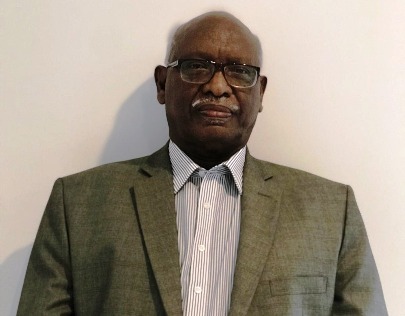Political Changes in Sudan

Zein Al-Abidin Saleh Abdel Rahman
The political landscape in Sudan has begun to change. This change is not limited to the agenda related to war and political work alone; it will also affect the players on the political stage, who will be changed through the shifts occurring in the military field. This was something I mentioned in several previous articles. Some commentators believed that war was not necessarily a factor in changing the players.
The Cairo Conference of Sudanese Civil Forces, held under the auspices of the Egyptian government, marked a turning point between the two phases. In the first phase, there was complete control by several countries managing the scene: the United States, Britain, Saudi Arabia, the European Union, the IGAD, and the African Union. These actors recognized the “Central Forces for Freedom and Change” as the legitimate civil forces and worked hard to restore them to power. Military pressure was being exerted by militias on the armed forces, with the UAE supporting the militias militarily and politically. The leadership of “Taqaddum” was under Emirati pressure to implement the agenda it desired.
The U.S. and Britain felt the weakness of the “Central FFC” when they advised them to go to Cairo and hold their conference there to engage with the political forces present in Cairo, to exert pressure to end the war. The “Central FFC” went to Cairo, held their conference, and issued their statement, but failed to manage a dialogue with the political forces in Cairo. This failure led the supporters to search for a way to change the leadership and introduce a new leadership capable of handling political work. Consequently, the task was assigned to the four individuals who had stated on behalf of the civil forces in the U.S.: “Baqir Al-Afeef, Nour Al-Din Satti, Bakri Al-Jack, and Abdel Rahman Al-Ameen.” This transition from a statement to reality was achieved with the support of the U.S., Europe, and the UAE, which imposed Abdullah Hamdok, whom it had retained since his resignation in November 2021. The UAE showcased him after the war, allowing him to hold a press conference in Abu Dhabi.
The parties responsible for leading the political work are retreating and making way for independents, demonstrating their complete inability to manage the political crisis. Abdullah Hamdok, being inexperienced, was expected by the UAE to still hold some popularity in the Sudanese street, which had previously thanked him by saying “Thank you, Hamdok” when he was appointed. One mistake by “Taqaddum” was signing a political declaration with the militias under the spotlight of media channels. Secondly, when he visited Egypt to meet with Egyptian leadership and met with the head of intelligence, he refused to meet with Sudanese citizens in Cairo, fearing their protest.
“Taqaddum” received support from the U.S. and European countries. Still, during the foundational conference, it was clear that there was a significant presence of militia elements, and it became apparent that “Taqaddum” could not manage the crisis as expected. Therefore, “Taqaddum” accepted expanding the base of participation in the dialogues in France and Switzerland. The Cairo Conference was a major turning point in the political process, as the concept of “no political drowning” completely fell apart, and “Taqaddum” accepted sitting with those it had previously rejected, especially during the “Framework Agreement” dialogues.
The Cairo Conference, which was attended by many representatives from countries and organizations, confirmed that “Taqaddum” was a product of leadership that failed in its tasks and lacked broad social support. At the same time, the militias had transformed from political forces to groups of thieves and killers roaming Sudanese cities and villages, with no leadership capable of controlling these issues. These developments necessitated fundamental changes in the political process.
Previously, “Central FFC,” now “Taqaddum,” was the one determining who should attend any dialogues organized by the African Union or IGAD or cancel them. Now, “Taqaddum” has apologized for not attending the dialogue conference called by the African Union, and the dialogue was held with those who were present. To be clear: if there is wise political leadership in these parties under “Taqaddum,” they should withdraw and make changes to their leadership if they truly wish to continue in the political arena. The war is expected to end with the army’s victory, and the militias will be removed from both the military and political spheres. These parties will then face confrontation with the people inside Sudan. If the parties are willing to be led by independents, why were they formed in the first place? This indicates that their leaders are either political activists or lack the necessary capabilities.
The visit of Ethiopian Prime Minister Abiy Ahmed to Port Sudan and his meeting with General Abdel Fattah Al-Burhan, Chairman of the Sovereign Council, represents a new stance. In the first meeting of the IGAD Quartet in Addis during the war, Abiy Ahmed explicitly stated that there was a power vacuum in Sudan and called for East African forces to create a demilitarized zone around Khartoum with a fifty-kilometer radius. Now he boards his plane and heads to Port Sudan, the location from which the state is being managed, and meets with the leadership. Regardless of the messages and topics he raised, this action represents an acknowledgment and a new shift in the scene with significant implications.
The opportunity for “Central FFC” to open the door to inclusive participation and dialogue for national consensus was there since the “Framework Agreement,” but short-sightedness and the desire for power stripped it of the cards it held. The task will now fall to new leadership with political experience and a complete understanding of the democratic transition process, which should be established through broad national consensus, not division and exclusion. We ask God for success and clear insight.



